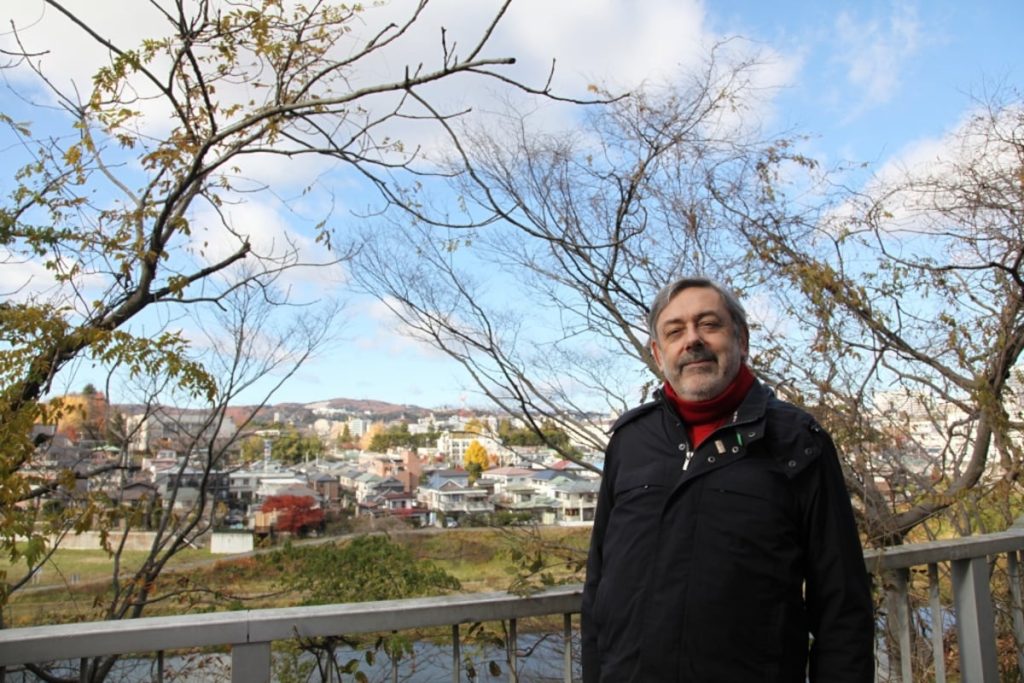David Alexander, a 71-year-old from England, is well-versed in the climatic history of the Mediterranean Sea, on which he completed his doctoral studies at University College London (UCL). He predicts that southern Europe will face more frequent and more severe floods in the not-so-distant future. His expertise lies in disaster management and risk planning, subjects he has studied for 45 years and now teaches at UCL. He stresses the importance of civil protection in emergencies, highlighting how prepared citizens are for increasingly common natural disasters. Following the devastating dana that struck the province of Valencia on October 29th, Alexander points out the failures in the response, the role of volunteers, and the lessons that must be learned to prevent a tragedy of this magnitude from happening again.
Regarding the prevention failures during the dana on October 29th, Alexander emphasizes the importance of a functional alert system that includes technical, administrative, and social components. He notes that the administrative and social aspects of the alert system were weak or absent in Valencia, causing many deaths due to a lack of awareness and readiness among the population. Alexander emphasizes the need for citizens to trust local authorities in disaster situations, advocating for participative democracy to ensure public engagement in all stages of disaster management. He highlights the challenge of fostering public trust and effective communication in a time where reality, including the proliferation of misinformation, seems fragmented.
To ensure an effective response to disasters when prevention systems fail, Alexander stresses the importance of clear, simple communication in emergency protocols. He mentions the need for citizens to understand safety measures during specific events, such as avoiding remaining trapped in a vehicle during a flood. Alexander criticizes the bureaucratic and complex language of Spain’s civil protection code, calling for more accessible information to educate the public on how to respond to disasters. He emphasizes the potential of technology in preparing citizens for emergencies and highlights the importance of having communication tools like radios at home to stay informed during crises.
Regarding the delayed response in areas affected by the dana, Alexander underscores the importance of immediate and well-coordinated actions from authorities. He emphasizes the necessity of quickly identifying the extent of a disaster and deploying resources efficiently to the most affected areas. Alexander advocates for investments in a responsive system primarily driven by civil society volunteers, including various professionals like engineers and nurses. He compares this emergency response service to essential public services like street lighting or waste collection, emphasizing its critical role in disaster management.
Addressing the accountability for the Valencia catastrophe, Alexander believes it is fair to hold individuals responsible up to a certain extent, stressing that all citizens share responsibility for civil protection failures. He mentions the need to question the preparedness of government officials, such as the Valencia region’s president, for events of such magnitude. Alexander emphasizes the collective responsibility of society in disaster management, highlighting the importance of organized volunteer efforts in response to crises.
Alexander compares different countries’ responses to disasters, citing Japan’s disciplined population and proactive approach to disaster management as exemplary. He discusses the organizational efficiency of Australian volunteer systems and Sweden’s strong sense of responsibility in disaster preparedness. He notes Italy’s well-organized civil protection system and extensive local volunteer organizations as leaders in disaster response within Southern Europe. Alexander underscores the necessity of harmonized coordination at regional, national, and local levels to prevent a recurrence of devastation like that experienced in Valencia.
To prevent future tragedies like the Valencia floods, Alexander advocates for improved regional government coordination, national integration, information exchange, and structured emergency planning. He stresses the importance of a culture shift towards inclusivity and seriousness in civil protection efforts. Alexander calls for a collective effort in fostering a safety-focused mindset among individuals, families, communities, and society as a whole. He emphasizes the challenging but achievable nature of cultural transformation towards a more proactive and secure approach to disaster management.















